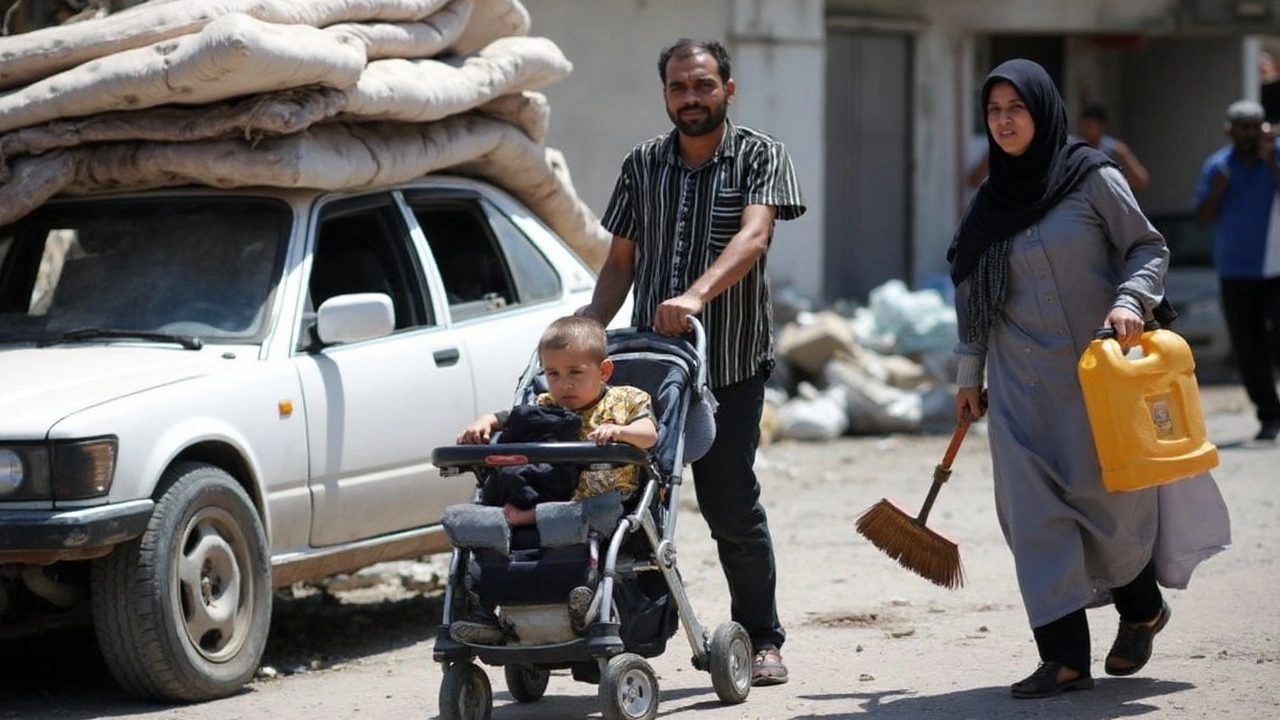UN Humanitarian Crisis: What’s Happening and How You Can Make a Difference
When the UN declares a humanitarian crisis, it signals that millions are facing hunger, displacement, or disease because conflict or disaster has torn societies apart. These alerts aren’t just headlines – they guide where money, food, and medical supplies go. If you’re reading this, you probably want to know the key facts and what you can actually do to help.
First, let’s break down the basics. A UN humanitarian crisis is a situation where the basic needs of a population cannot be met due to war, natural disaster, or a sudden breakdown in services. The United Nations Office for the Coordination of Humanitarian Affairs (OCHA) steps in to coordinate aid, working with NGOs, governments, and local partners. Their goal is simple: get life‑saving assistance to the people who need it most, as fast as possible.
Recent Crises You Should Know About
In the past year, the UN has flagged several major emergencies. In the Horn of Africa, drought has pushed over 20 million people into food insecurity, prompting massive food‑distribution drives. In the Middle East, the ongoing conflict in Syria continues to generate displacement figures that top 13 million, stretching shelter and medical services thin. Meanwhile, the flood season in South‑East Asia has left entire villages underwater, creating urgent needs for clean water and disease prevention.
These examples illustrate a pattern: climate change, conflict, and pandemics often combine to make the situation worse. Understanding the root causes helps donors target their aid more effectively, whether it’s funding resilient agriculture in drought‑prone areas or supporting water purification projects in flood zones.
Practical Ways to Support UN Relief Efforts
Want to turn concern into action? Here are three straightforward steps:
- Donate to trusted partners. The UN itself doesn’t accept direct donations, but agencies like UNICEF, World Food Programme, and OCHA’s partner NGOs do. Look for campaigns that specify a clear use of funds – e.g., “$50 provides meals for a family for a week.”
- Raise awareness. Share verified updates on social media, write to local representatives, or host a community briefing. The more people know about a crisis, the quicker resources can flow.
- Volunteer your skills. Whether you’re a medical professional, translator, or logistics planner, many NGOs need expertise on the ground. Even remote tasks like data entry or translation can speed up aid distribution.
Remember, the biggest impact comes from consistent, informed support rather than one‑off gestures. Signing up for newsletters from UN agencies keeps you in the loop about emerging emergencies and funding gaps.
Finally, stay skeptical of scams. During a crisis, fake appeals surge. Verify that the organization is listed on the UN’s official partner directory before handing over cash or personal data.
By staying informed, sharing accurate information, and directing resources wisely, you become part of the global safety net that the UN relies on to tackle humanitarian crises. Every contribution, big or small, helps turn a desperate situation into a story of recovery.

Gaza famine confirmed in Gaza City as UN calls it a failure of humanity
A UN-backed analysis has confirmed famine in Gaza City for the first time, putting the area at IPC Phase 5— the most severe level. Over half a million people face starvation, with conditions projected to spread to Deir al-Balah and Khan Younis by late September. The UN chief called it a man-made disaster. Israel rejects the findings, as aid groups warn deaths will climb without an immediate surge in access.